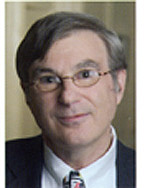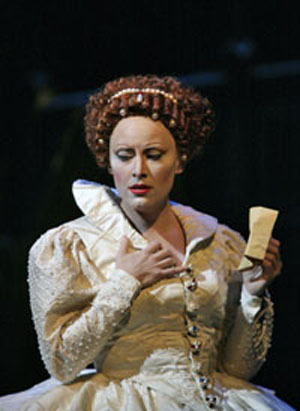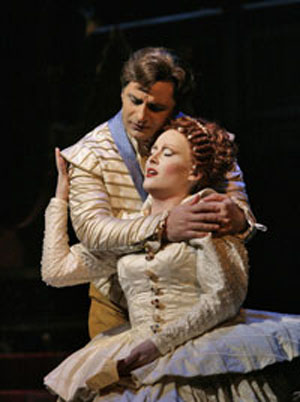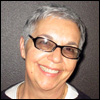| |
|
In Israel, the egg roll wars heat up
By Dov Burt Levy
 SALEM, Massachusetts—The facts below are all true; this is not a spoof. As Art Buchwald said about Washington foibles, "You can't make this stuff up." SALEM, Massachusetts—The facts below are all true; this is not a spoof. As Art Buchwald said about Washington foibles, "You can't make this stuff up."
On February 12, 300 Asian restaurants in Israel refused to serve spring and egg rolls, a real strike with a real issue at its heart.
"Today there is no egg or spring rolls and in two weeks there will be no sushi and noodles," said Arnon Volosky, head of the Ethnic Restaurant Organization. The group demanded that the government rescind rules designed to replace Asian cooks with Israelis as part of a larger plan to reduce the number of foreign workers in Israel.
"Everyone can make Chinese food; it's not impossible to learn," said Shoshana Strauss, a lawyer working for the Ministry of Industry, Trade and Labor.
Volosky responded, "Some things you have to grow up with. These cooks come from a culture that we don't have the skills or know-how or cultural behavior to do well. You have to respect this."
Israel had few Asian restaurants until about 30 years ago. On June 10, 1977, an Israeli cargo ship found 66 refugees, Vietnamese boat people, on a leaking boat and brought them to Israel where they were granted full citizenship.
Another 250 Vietnamese were rescued over the next two years. Many found jobs in Asian restaurants; some became proprietors. Sushi is so popular that Tel Aviv's 100th sushi restaurant opened in January.
This year the government is granting only 500 permits to Asian chefs compared with 900 last year. Next year, the plan is to have none.
During my work as a professor of Public Administration, I often told my students, "Never propose public policy that on the face of it is easily ridiculed. You will lose and the government will be dishonored." This is exactly what happened when I sent the original Reuters news report for comment to four friends, two from America, two from Israel. My friends became instant late-night TV show comedians; albeit, their comments were surely tongue in cheek.
A professor, journalist, author in Tucson said, "I have seen African-Americans cooking Mexican dishes and Mexicans staffing the kitchens of Chinese restaurants. At my favorite sushi parlors, two tall very blonde Anglos slice fish and make rice balls.
"The proprietor of a well-known Chinese restaurant told me that the Mexicans in his kitchen are adept at producing egg rolls and Kung Pao chicken. He said. 'They might have trouble making a decent cholent, but egg rolls are no problem.'"
A former government official, writer and political maven wrote, "Asians, especially Chinese Asians, are very tough negotiators. Expect next: 'You want spring rolls? You want egg rolls? We want to serve in the Knesset.' "
"Give in to the first extortion and the next demand will be for exclusive rights to catering in the Gaza Strip. Beware of Chinese bearing spring rolls."
An Israeli lawyer, businessman, writer and political maven said, "Considering that Israeli teachers just completed a 3-month strike, one egg roll denied each day isn't much. My guess is a one-day egg roll strike is all they will need. I mean - you can always catch up on homework, but how long can you go without good Chinese food? And that government lawyer who thinks everyone can cook Chinese food, she probably thinks falafel is a delicacy."
An Israeli journalist and author said, "How can we be sure we're living in a Jewish state if there are no authentic Chinese restaurants in our neighborhood?"
What do I think? My admonition to the political science students was correct. If a government action on the face of it cries for ridicule, it won't pass muster.
How will things turn out in Israel? Who knows? Though, I'd bet this ban on Oriental workers will be rescinded, postponed or restudied.
One thing is certain; Israelis have discovered an original way of striking, of publicizing an issue. Taking something off a revered menu might be more effective than burning tires, stopping highway traffic or picketing the Prime Minister's residence.
Still, I must say, and hopefully without groans from you, that a whole bunch of Israelis and hungry American tourists find the whole situation rather tasteless.
Finally, forgive me for taking a break from writing about more serious events. I need to laugh, or at least smile, once in a while, and I'm sure you do, too.

Scholar-in-residence
● Rabbi Ari
Kahn, director, Foreign Student Programs,
Bar Ilan University, Israel, Feb.
22-23
Presentations are free; kosher meals moderately priced
Call us for details at (619)
287-9890, Please reserve Shabbaton meals

Be a part of our San Diego Jewish World!
Between 2,000 and 3,000 visitors read our online news service every day. With your help, we would like to give them even more to read.
We are looking for more volunteer writers and photographers, and more commissioned advertisting sales personnel.
If you'd like to join our team, please express your interest in an email to Donald H. Harrison, our editor and publisher, at sdheritage@cox.net. It doesn't matter where you live, so long as you have a Jewish story to tell. And, as anyone who reads our masthead knows, there's a Jewish story everywhere!





PEOPLE OF THE BOOKS
A Jewish path to self-improvement
Everyday Holiness: The Jewish Spiritual Path of Mussar by Alan Morinis, Trumpeter Books, Boston & London ISBN 978-1-59030-368-9, 2007, $24.95, p. 334
Reviewed by Fred Reiss, Ed.D.
 WINCHESTER, California—New Year’s resolutions about self-improvement may come and go, but the need for positive growth continues all year. Everyday Holiness: The Jewish Spiritual Path of Mussar by Alan Morinis, offers us a path to personal improvement based on the teachings of the Mussar movement. Mussar, also known as the Jewish Moralist Movement, gets its name from a Hebrew word found in the Book of Proverbs meaning discipline or conduct. WINCHESTER, California—New Year’s resolutions about self-improvement may come and go, but the need for positive growth continues all year. Everyday Holiness: The Jewish Spiritual Path of Mussar by Alan Morinis, offers us a path to personal improvement based on the teachings of the Mussar movement. Mussar, also known as the Jewish Moralist Movement, gets its name from a Hebrew word found in the Book of Proverbs meaning discipline or conduct.
Mussar took hold in the late nineteenth century in Eastern European non-Hasidic, Orthodox Jewish communities, particularly in Lithuania. Rabbi Israel Salanter, inspired by the moral, ethical, and simple lifestyle of Zundel Salant, is often cited as the movement’s founder. However, credit for institutionalizing the movement into the Orthodox community falls on one of Salanter’s disciples, Rabbi Simcha Ziv. Others attribute the seeds of Mussar to the last century in the writings of Rabbi Moshe Chaim Luzzatto. Still others, like the author, argue that its roots go back to the tenth century in the Book of Beliefs and Opinions written by Sa’adia Gaon.
Eastern European Jewish communities, during the late nineteenth century, were affected by the Enlightenment, and its corresponding Jewish interpretation, known as Haskalah. The freedoms associated with the Enlightenment, along with acts of anti-Semitism, oppression by the Czar, the ideas of communism and socialism, even the Zionist movement and the pervasive poverty in this region, caused many Jews to become disenchanted with the religion and abandon Judaism or convert. Yet, some of those who maintained the faith noticed the decline in the observance even among professed Jews of traditional Jewish law and custom, as well as the loss of the emotional connection to Judaism’s moral and ethical core. The Mussar movement offered a solution.
The first part of the book gives an overview of Mussar’s core beliefs. The author, as the voice of the Mussar Movement, affirms that each person has a central task in life, which he calls “our individual curriculum,” and each of us is responsible for understanding and accomplishing that curriculum. Just as each person’s fingerprints are unique, so according to Mussar, each soul is unique. Rabbi Salanter wrote that, “We see the affairs of man constantly vary, each person clinging to different transgressions…. No person is like another when it comes to transgression.” Many things hinder us from completing our life’s assignment, especially our own shortcomings. Yet, our negative habits can be transformed though personal introspection and by employing the body of practices presented by Mussar.
The second part contains eighteen chapters. Each chapter examines one of Mussar’s inner soul traits (there are many more than eighteen, but he only spotlights eighteen) and suggests methods for individual enhancement of each trait. The definitions that we associate with Mussar’s soul traits, which include such things as humility, gratitude, order, honor, enthusiasm, generosity, etc, are not necessarily the way Mussar defines them. However, according to the Mussar Movement, understanding and applying these soul traits in our daily lives are so important, that they are, in fact, the keys to satisfying our curriculum.
According to Morinis, “unbalanced soul-traits act as ‘veils’ that block the inner light.” An overuse of anger, per se, is not the obstruction to fulfilling our individual curriculum because anger is required in the face of injustice, but anger becomes an obstruction when the person lacks anger’s balance. More importantly, the desire to improve is not necessarily sufficient because of our inner enemy, the internal voice that subconsciously subverts our good intentions. Morinis pictures the soul as the battleground for two armies. Territory behind one line belongs to that army and territory behind the other line belongs to the second army. As the inner struggle ensues, new territory comes under the control of one side or the other. For each of us, the battle lasts our entire lives and to beat that inner voice, Mussar suggests finding a mentor.
To help us with the inner struggle, Mussar offers practical suggestions to inculcate the soul traits and obtain a balanced life. Consider the soul trait “Patience.” There are times when impatience is a virtue, such as the speed needed to save someone’s life. However, for the most part impatience does not speed things up, but rather causes grief. “It’s like an inner blaze that burns us up without giving off any heat.” To help us become more patient, Morinis reminds us that God is patient and long suffering and he asks us to remember how the eons of time in earth’s history demonstrate that progress is made in small increments, like the creep of glaciers. To gain patience, Mussar wants us, in a sense, to open the space between the match and the fuse. “It only takes a split second for [impatience] to ignite into flames that course through us… Impatience snuffs out conscientious.” We react without thinking: leaning on the horn, yelling at the child, cursing the stranger. Mussar teaches that in these situations, we can choose to have patience.
One means of self-enhancement is by the practice of “witnessing and naming.” Here it means sensing the first sparks of impatience and saying, “I am feeing impatient” or “There goes impatience.” Once impatience is identified, Morinis wants us to shift the focus. In the game of life no one is the prime actor or victim. When we understand that we have so little control over anything, we can keep the wasteful energy of impatience in check. The Hebrew word for patience can also mean tolerance; to learn patience is to learn to tolerate.
The third part provides the exercises to help the reader internalize the soul traits. Mussar offers guided practice in three forms: daily, weekly, and yearly. The daily reminder is a personal phrase said from the moment one wakes up that alerts each person to the soul trait that needs improvement. Another is individual meditation through chanting and visualizations of those things that lead us toward self-improvement. A third daily activity he calls, “bedtime practice,” which is writing about and reviewing the day’s activities that show positive development in the desired soul trait. There are also weekly practice exercises, such as text study, where the individual reads a portion of a book by a Mussar author. Another is based on the idea that “we are what we receive.” A diet of violent movies, Morinis assures us, leads one to violence. Mussar responds that we perform a weekly checkup to confirm that we are receiving the messages that support growth in the soul trait on which we are concentrating. Finally, there is the annual cycle, where we review our progress toward the improvement of the soul traits by reviewing all that we have written. Morinis emphasizes time and again that Mussar is not a quick fix to personal growth, but rather is the slow and steady use of guided study and practice to enhance one soul trait at a time.
Some people, Jews and others, have looked eastward to find to life’s meaning in Asian religions and by relying on gurus and swamis. Others have looked for charismatic leaders. Morinis shows that seekers of self-fulfillment need only to look at the ethical and morals within Judaism, as adapted by the Mussar Movement, to satisfy that need.


 
ARTS IN REVIEW
S.D. Opera scores with Maria Stuarda
By Carol Davis
 SAN DIEGO--If you polled the audience after the opening night performance of Donizetti’s Maria Stuarda, making its San Diego premiere at the Civic Center downtown, they would give it a resounding ‘two thumbs up’! I lost count of the curtain calls, but on the way to my car, I couldn’t help overhearing enthusiastic conversations about wanting to see it a second time, and so would I. Now that’s after sitting through an almost three hour performance. That has to tell you SAN DIEGO--If you polled the audience after the opening night performance of Donizetti’s Maria Stuarda, making its San Diego premiere at the Civic Center downtown, they would give it a resounding ‘two thumbs up’! I lost count of the curtain calls, but on the way to my car, I couldn’t help overhearing enthusiastic conversations about wanting to see it a second time, and so would I. Now that’s after sitting through an almost three hour performance. That has to tell you
something.
I say all this because the leading lady, Angela Gilbert, who was touted as the next best thing to sliced bread (and she might be) got sick and in her place Albanian soprano Ermonela Jaho sang the role of
the slighted and then beheaded Queen of Scotland, Maria Stuarda or Mary, Queen of Scots. Jaho had just sung the role in the Berlin Staatsoper last November where Artistic Director Ian Campbell
happened to have seen her perform. Some things, as Temple Beth Israel-member Campbell can tell you, are just beshert . Gilbert took the helm as the slighted Queen on Tuesday evening’s performance and will continue through the run, which is over on Sunday, Feb. 24.
That said, while Donizetti’s piece is titled Mary, Queen of Scots the struggle between these two strong willed women, has more to say about the ‘Virgin Queen’ than about her cousin. Since both women
throw accusations and insults at each other as easily as say, treason, it’s easy to understand their long-standing and seeded hatred toward one another. But the frosting on the cake is that they both are in love with the same man, the Earl of Leicester (Armenian tenor Yeghishe Manucharyan). Why, is another question because his slight build and less than formidable first impressions leave much to
be desired as were some of his quirky movements while he was singing. As they say, beauty is in the eye of the beholder. I suppose if you closed your eyes and just listened, it would make a
world of difference. American mezzo- soprano Kate Aldrich’s, whose voice was magnificent on opening night, was just about pitch perfect as Elizabeth. Not only can she sing, but also her acting is also very convincing. Both women soared in their respective roles.
In fact, director Andrew Sinclair was fortunate enough to have had a strong cast and chorus to work with. British bass-baritone Andrew Greenan as Lord Cecil, (a superb full baritone voice) the Lord
Treasurer who insists that Mary be tried for treason, German bass Reinhard Hagen casts an impressive figure as Talbot, the Earl of Shrewsbury, who wants to save Mary and Israeli mezzo-soprano Susana Poretsky, another stellar voice as Mary’s companion, Anna, who stands
by her friend to the bitter end.
The San Diego Opera company is giving this less than oft heard opera a wonderful outing with impressive sets by Ming Cho Lee, beautiful period costumes by Ingeborg Bernerth, Ron Vodicka’s lighting design and under the most able baton of conductor Edoardo Müller. Unfortunately, and it’s the only criticism I have of the entire production, some of director Andrew Sinclair’s staging left much to be desired especially in Act I, Scene II at the grounds of Fotheringay Castle when the hunters (part of the chorus) were assembled on stage and looked like deer in the headlights.
Fortunately, they were soon shooed off the stage by the Queen.
If you have a chance to see and listen to the splendid music of Donizetti, don’t miss it.
See you at the theatre.


THE JEWISH CITIZEN
We can make the souls shimmer longer
By Donald H. Harrison
 SAN DIEGO—Not very long ago, I made a shiva call at the home of Eileen and Hal Wingard, two people whose talent, kindness and commitment to the welfare of their fellow human beings never fail to impress me. We all were mourning the death of Eileen's mother, Rose Schiff. SAN DIEGO—Not very long ago, I made a shiva call at the home of Eileen and Hal Wingard, two people whose talent, kindness and commitment to the welfare of their fellow human beings never fail to impress me. We all were mourning the death of Eileen's mother, Rose Schiff.
Will some reader out there please help me, because I still cannot remember the name of the author whose short story I paraphrased on the evening when Eileen asked if I would like to say a few words about her mother. I think it was one of the French authors—Gide, Sartre or Camus—but searching for his name on the Internet thus far has been fruitless. Strange, because his story has profoundly affected me, and I would like to give him full credit. It's ironic, given the thrust of the story that I will now relate, that I don't have his name to say. So please if you know the author of the story, send me an email at sdheritage@cox.net and I'll append your answer to this article.
The short story concerned a person who died, and his soul went straight to the stars. As the news of his death circulated, his name was mentioned often—and every time that occurred, his soul shimmered. In fact, during the year following the man's death, his soul shimmered quite often as people remembered this or that occasion when they had been with him.
But life down here on earth went on, and as people became increasingly involved with other things, his soul shimmered less and less often. But there would be days when he was remembered—his birthday, the anniversary of his death, his wedding date—and, if only for a few seconds, his soul awakened from its deep respose whenever someone mentioned his name.
Within a while, all the people of his generation who knew him also had died. There were far fewer people on earth with the power to make his soul shimmer. Nevertheless there would be an occasional moment when his children and grandchildren mentioned his name, and when they did, his soul would come to life.
After his children died, his soul very rarely had the occasion to shimmer anymore—so infrequent were the circumstances that his grandchildren would pause from their busy lives to remember him.
Eventually, his grandchildren died, and as they were the only ones who remembered him, his soul never shimmered again. That was when it might be said that he died once and for all. From that point on, it was as if he had never lived.
I suggested that the soul of Rose Schiff would be a-shimmering in the stars for many, many years to come. She had been a devoted mother to Eileen and to Zina Schiff, and a loving grandparent to their total of six children, and a kvelling great-grandmother to one boy and three girls. Beyond that, Rose Schiff was well-appreciated at Tifereth Israel Synagogue,where she had helped to found the Friendship Club and where she attended Shabbat services almost every Saturday morning. Rabbi Leonard Rosenthal had commented that it would seem so very strange looking out at the sanctuary and not seeing her there. I liked Rose because I think she had a way of bringing out the best in people.
Prior to that shiva evening, I had published an obituary of Rose Schiff based on what her family members had said about her at the funeral service, which was held in the synagogue sanctuary that Rose so loved. One of the reasons I did so was because ever since I had read the story by the author whose name I can't remember I had resolved that I'd do whatever I could in my meager power to extend the memory of people whose lives were those of accomplishment. As long as San Diego Jewish World continues, the story of Rose Schiff will be in the archives. As long as the Louis Rose Society for the Preservation of Jewish History continues, the story of Rose Schiff will also be contained there.
When I wrote a biography of Louis Rose, San Diego's first Jewish settler, I felt a sense of accomplishment. This was not only because I was its author, but because the book was obtained by various library branches and thus might be read by people interested in local history long into the future. I was even more pleased when the City of San Diego's Park and Recreation Commission decided to name Louis Rose Point for him at the foot of Womble Street in commemoration of his service to the city as a member of the board of trustees, the board of supervisors, the school board, the grand jury, as a businessman, and as the namesake for the Roseville section of Point Loma and Rose Canyon.
If ever the Louis Rose Society, now headed by Joellyn Zollman, is successful in our dream of erecting a statue of Louis Rose, together with his Galapagos Tortoise "Chili" and his little dog, "Pat," we will thereby give the children of San Diego a story to love from San Diego's past, and we'll be able to make Louis Rose's soul shimmer ever more brightly.
Extending memory is also why I have gratefully accepted an assignment from the United Jewish Federation to write a portion of an Israel-at-60 book celebrating the San Diegans who have helped to build Israel between the time of its creation in 1948 to the present.
It also is why the Louis Rose Society for the Preservation of Jewish History operates a website on which family and friends may honor the memories of people, living or dead, who have been part of the San Diego Jewish community. By sending $18—the number we Jews associate with life—in a check made out to the Jewish Community Foundation/ Louis Rose Fund, (4950 Murphy Canyon Road, San Diego, CA 92123), people who want to help preserve someone's memory may do so.
We will add that person's name to the list of honorees of the Louis Rose Society and also put up a page on the site about that person to which people may add favorite anecdotes. The tax deductible contributions that people send in for this purpose will be used to build the statue of Rose and his animal friends.
Please look down the list of the 393 people so far honored on the Louis Rose site, and if you'd like, please read their names aloud. You may see many places in the stars start to shimmer!

SAN DIEGO JEWISH WORLD THE WEEK IN REVIEW
Peter Garas in Canberra, Australia: When bunnies and children urge murder
Charly Jaffe in San Diego: Anita Diamant takes women beyond usual feminist mantras ... to the the mikvah
Sheila Orysiek in San Diego: Sharing the Dessert: The Last Grand Jeté
Natasha Josefowitz in La Jolla, California: Grandparents, beware a call like this
Candye Kane in San Diego: Singer lauds Nimoy for photography book giving 'full-bodied' women kind exposure
Ira Sharkansky in Jerusalem: The more Palestinians and Israelis talk,
the more a real peace agreement recedes
Judy Lash Balint in Jerusalem: The separation fence—two views
Natasha Josefowitz in La Jolla, California: Feeling stressed? Write it down!
Peter Garas in Canberra, Australia: Entertainer of Nazis still keeps warbling
Donald H. Harrison in San Diego: That annoying guy in the German trench
Sheila Orysiek in San Diego: Happy Birthday, Mr. President - Your day should be more than a day off from work
Peter Garas in Canberra, Australia: Arab media censorship plan may indicate various governments are feeling shaky
Donald H. Harrison in San Diego: House of Israel members describe plans
for better reflecting modern-day Israel
Rabbi Baruch Lederman in San Diego: The case of the Holocaust victim's tefillin
Rabbi Leonard Rosenthal in San Diego: What rabbis hear when in Washington
Ira Sharkansky in Jerusalem: U.N., Hamas are blaming Israel for
Palestinians' self-inflicted problems
< BACK TO TOP
|
|
